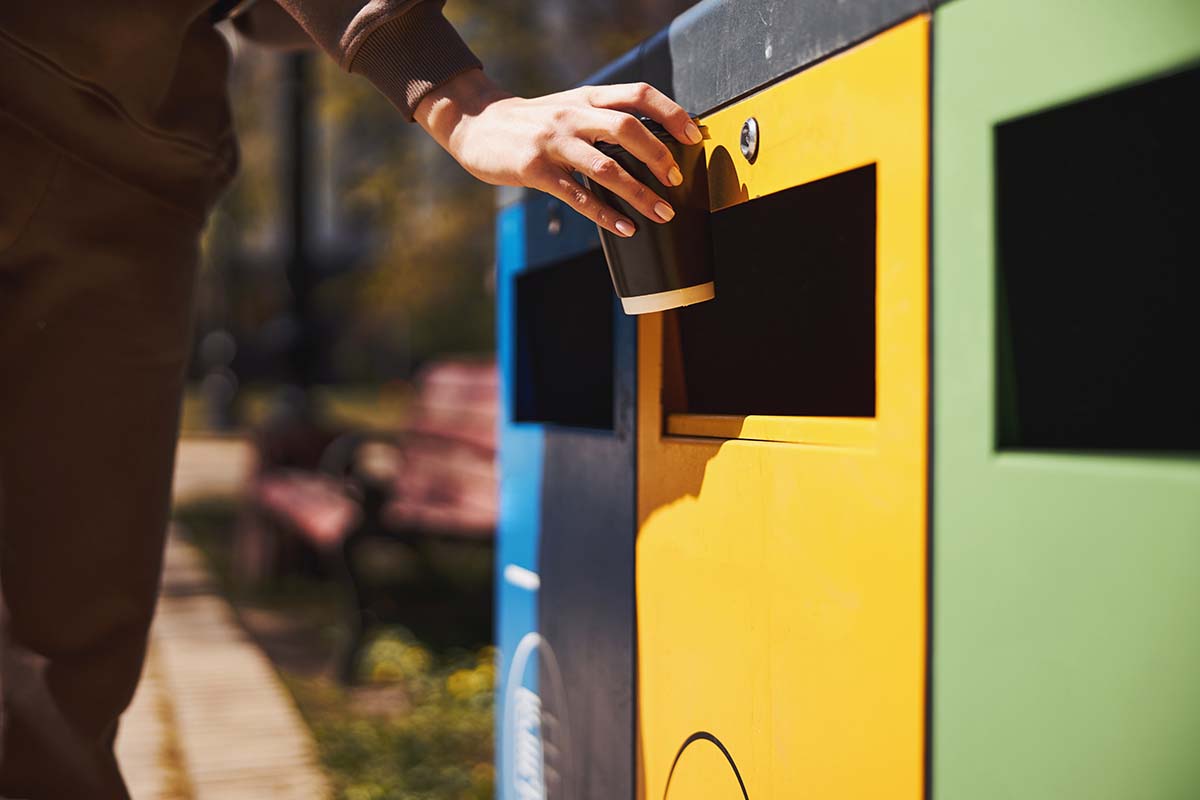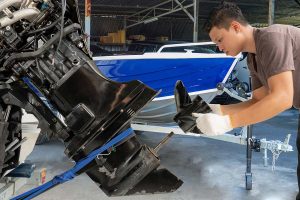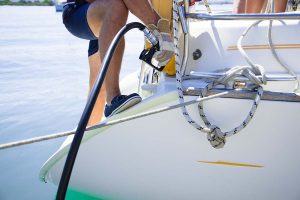
Bringing Marina Operations into the Sustainable Age
Published on May 2, 2024Environmentalism is on the rise across the globe. Both individuals and businesses, including marinas, are finding their way toward greener practices.
Since marinas are at the water’s edge, the potential for pollutants entering the water is always high. More and more marina owners are taking steps to prevent these contaminants from reaching the water, and in turn, making their facility friendlier to the environment. The new generation of boaters (especially millennials and Gen Z) tend to be more environmentally conscious than ever—and showing the greener side of the boating industry might be just what is needed to capture their attention.
Educate Boaters and Staff
Education is key when it comes to environmentalism—and marinas are in a great position to guide people in the right direction. To ensure the longevity and safety of boat engines, regular maintenance is crucial. Boat owners should schedule annual tune-ups with qualified mechanics, prioritizing checks for oil leaks and fuel line integrity. Oil leaks pose significant environmental risks, with just a cup capable of contaminating a football field-sized area.
Attention to fueling procedures is paramount, as overfilling inboard tanks is a common source of spills. The U.S. Coast Guard advises filling tanks to only 90% capacity to prevent overflow, supplemented by using absorbent pads near tanks and overflow attachments on air vents.
Using dishwashing soap to clean up spills is both illegal and harmful. Soaps add more contaminants to the water and send the oil below the surface, where it settles into sediment. Additionally, biodegradable propylene glycol (PG) antifreeze is recommended over traditional antifreeze options for environmental safety.
Emphasizing natural cleaning products for vessels not only reduces harm but also promotes environmental stewardship. Additionally, pet owners must responsibly manage pet waste to prevent water pollution within the marina basin.

Marina Must-Haves and Must-Dos
Part of operating a marina with the environment in mind is leaving nothing to chance. Owners and operators want to address every contingency, so staff and boaters have the best chance at eco-friendly success.
Prioritize environmental responsibility and safety for all patrons. Make trash bags readily available for boaters to take on board, encouraging proper disposal upon return to the marina where trash bins await, with signage emphasizing onshore disposal. For pet owners, provide doggy waste bags and receptacles for convenient cleanup.
Make designated recycling areas for various materials and signage, notably around fueling stations, outlining safe practices and potential penalties for negligence. Marina operators should always be present when a boater fuels their boat so they can access emergency shutoffs immediately, if needed. Additionally, make sure fuel nozzles are hung vertically to avoid dripping and that no one empties excess fuel from a hose on the ground or in water. Immediate reporting of spills or waste concerns is essential, directing attention to the U.S. Coast Guard’s National Response Center at 1-800-424-8802.
Consider replacing all incandescent lighting throughout the marina with more efficient LED lighting to save on energy and possibly lower bills. This includes night lighting for docks, safety lights, restaurant lighting and exit signs.
Look into adding additional sewage pump-out stations to deter boaters from improperly disposing of waste. Ensure these stations are regularly maintained that users are educated on their use and that vessels with portable toilets bring them to shore for safe waste disposal. Inappropriate disposal of waste into the water can stimulate algae production, lower oxygen levels and cause a health hazard for swimmers and shellfish. Encourage vessel owners to use the marina’s onshore restrooms and have restrooms regularly cleaned using eco-friendly soaps and cleaners. If financially feasible, equip restrooms and showers with EPA WaterSense®-labeled toilets, urinals, showerheads and faucets to conserve water and potentially lower bills.
Lastly, advise vessel owners to rinse boats off with fresh water after coming to shore. The vessel should also be removed from water when clients make repairs or cosmetic restorations that include scraping, painting or plastic mending. A tarp should be placed under work areas to collect particles or contaminants and then disposed of safely.
Utilize PMS

Physical adjustments that increase sustainability might be more obvious, but there are also many ways for marinas to use technology to support sustainability goals. Using a property management system (PMS) can help marinas develop low-cost, quick-to-implement solutions to accelerate incremental change toward sustainability. Solutions can include:
Go paperless. Eliminate the need for paper in day-to-day operations by implementing digital registration, billing and communications with guests;
Give back. Set up an optional carbon neutralization fee that guests can select at the time of reservation, and donate all money collected to environmental causes.
Choose sustainable partners. Ensure supply chain and tech stack partners are committed to sustainability. Check to see if the marina’s cloud-based PMS is hosted in an energy-efficient environment and if the PMS can interface with smart meters.
Recycle and Reduce Waste
Implementing sustainable practices at the marina involves various initiatives. Bulk purchasing of marina products reduces packaging waste, while on-site restaurants can be encouraged to use recyclable carryout containers. Recycling is made convenient with clearly marked containers, including separate receptacles for oil, waste oil, acid batteries, fuel filters and antifreeze. Instructive signage placed near docking spaces educates boaters on recycling locations, benefits and environmental repercussions of not recycling.
Additionally, launch a recycling collection program for used oil and oil filters, diverting them from landfills to be repurposed into motor oil, fuel and steel products. Online resources like www.Earth911.org facilitate finding recycling centers to support these efforts.
Carefully Select Products
Marinas can also think about the items being sold in ship’s stores and the food being served in cafes and restaurants on site. Consider selling environmentally friendly cleaning products at the marina to stop the flow of toxins into the water. Purchase organic, locally sourced food for menu items at facility restaurants. Add more vegetarian and vegan options to the marina menus to support lower CO2 emissions, and only serve fair-trade, organic coffees and teas.
By incorporating these strategies and other environmental best practices, marinas have the opportunity to keep area water safe and marine life thriving. As strategies are implemented, don’t forget to spread the news on marina websites, social media and in press releases. Not only will these initiatives help the environment, but the new sustainable status could noticeably boost visitors to the marina.
Kaelyn Beckman is marketing manager at RMS North American. She can be reached at kbe@rmscloud.com.
| Categories | |
| Tags |





